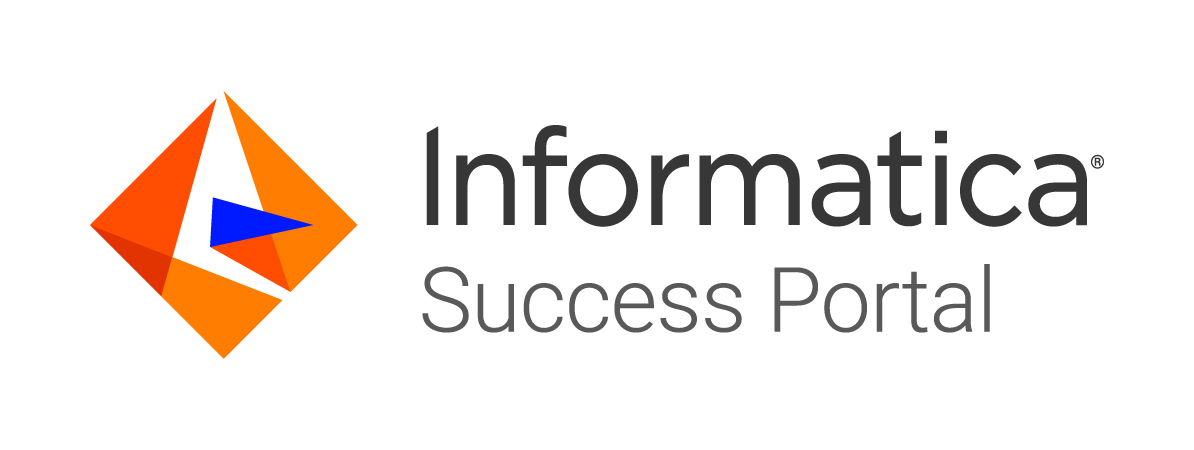-
Manage your Success Plans and Engagements, gain key insights into your implementation journey, and collaborate with your CSMsSuccessAccelerate your Purchase to Value by engaging with Informatica for Customer SuccessAll your Engagements at one place
-
A collaborative platform to connect and grow with like-minded Informaticans across the globeCommunitiesConnect and collaborate with Informatica experts and championsHave a question? Start a Discussion and get immediate answers you are looking forCustomer-organized groups that meet online and in-person. Join today to network, share ideas, and get tips on how to get the most out of Informatica
-
Troubleshooting documents, product guides, how to videos, best practices, and moreKnowledge CenterOne-stop self-service portal for solutions, FAQs, Whitepapers, How Tos, Videos, and moreVideo channel for step-by-step instructions to use our products, best practices, troubleshooting tips, and much moreInformation library of the latest product documentsBest practices and use cases from the Implementation team
-
Rich resources to help you leverage full capabilities of our productsLearnRole-based training programs for the best ROIGet certified on Informatica products. Free, Foundation, or ProfessionalFree and unlimited modules based on your expertise level and journeySelf-guided, intuitive experience platform for outcome-focused product capabilities and use cases
-
Library of content to help you leverage the best of Informatica productsResourcesMost popular webinars on product architecture, best practices, and moreProduct Availability Matrix statements of Informatica productsMonthly support newsletterInformatica Support Guide and Statements, Quick Start Guides, and Cloud Product Description ScheduleEnd of Life statements of Informatica productsMonitor the status of your Informatica services across regions
Smart data domains & its propagation
Smart data domains, also referred to as example-based data domains, provide a flexible and dynamic approach to data categorization within the EDC (Enterprise Data Catalog). Unlike traditional data domains that rely on predefined and rigid rules, smart data domains are highly adaptable, allowing users to create and manage them on-the-fly.
In the EDC, users can dynamically create smart data domains by directly tagging relevant columns within the catalog. This process is straightforward: a user associates a specific column with a smart data domain, and this association is then automatically extended to similar columns across the catalog. The system intelligently identifies columns that share similarities with the tagged column, facilitating the propagation of the data domain throughout the dataset.
This method enhances efficiency and accuracy in data management, as it reduces the need for manual tagging and ensures consistent classification of similar data across the enterprise. By leveraging smart data domains, users can achieve a more intuitive and streamlined approach to data governance and metadata management in the EDC environment.
- The source system to which the Smart data domain will be tagged must be scanned.
- Familiarity with the data objects to which the data domain will be tagged is required.
- Knowledge of Data domain propagation resources.
- Knowledge of Similarity Discovery resource.
- Gain an understanding of what constitutes a Smart Data Domain.
- Learn the distinctions between regular data domains and smart data domains.
- Acquire knowledge on how to propagate smart data domains.
- Understand what a Smart Data Domain is and how to propagate it to similar data objects using the Data Domain Propagation Scanner.
- Developer
- Architect
Ask An Expert
Feature Clarity
Enterprise Data Catalog
Ask An Expert
Implement
Adoption - Technical
Functional
AAE-EDC-014
Disclaimer
- All the topics covered in the Success Accelerators/Ask An Expert sessions are intended for guidance and advisory only. This is implicit and it will not be called out under the scope of each engagement.
- Customers need to include their relevant technical/business team members highlighted in each engagement topic to derive the best out of each engagement.
- Customers need to perform any hands-on work by themselves leveraging the guidance from these engagements.
- Customers need to work with Informatica Global Customer Support for any product bugs/issues and troubleshooting.
